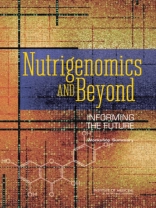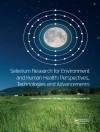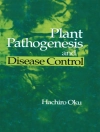The integration of biology, genomics, and health has opened the possibility of applying genomics technology to nutrition. In 2001, scientists associated with the Human Genome Project announced the successful mapping of the reference sequence of the human genome. Since then, a body of information has emerged. Genomics and related areas of research have contributed greatly to efforts to understand the cellular and molecular mechanisms underlying diet-disease relationships. Integration and application of genetic and genomics technology into nutrition research is, therefore, needed to develop nutrition research programs that are aimed at the prevention and control of chronic disease through genomics-based nutritional interventions. Of interest is the integration of relevant computational methods into nutritional genomics research; the enhancement of tools applicable to systems biology; and the effective dissemination of genomics-derived information to scientists, policy makers, and the interested public. To address these issues, a workshop was held on June 1 and 2, 2006. The workshop included presentations that were structured around three focus sessions: human genetic variation, epigenetics, and systems biology. A fourth session presented discussions on the implications of nutrigenomics for the future of nutrition science research. Numerous themes emerged from the workshop presentations. First, nutrigenomics is a complex field because it addresses issues related to multigenetic traits that can be modified by a number of nutritional and other environmental factors. Such complexity presents a challenge to the field; and the ensuing research opportunities will require cooperative work among scientific disciplines and across government, academic, and industrial centers, as well as adequate funding, to be realized. Additionally, the ability to stretch the limits of conventional research methodologies afforded by new genetic and genomic applications at the level of the individual opens the door to a wealth of potential benefits to areas such as disease prevention and wellness, bearing in mind the necessity of ethical safeguards. This potential, however, must be wisely exploited to avoid the pitfalls of overpromising research results and prematurely setting unrealistic expectations for beneficial outcomes. Finally, careful and rigorous research must be employed to optimize outcomes and assure acceptance by the scientific community. In summary, nutrition science is uniquely poised to serve as the crossroads for many disciplines and, using genomics tools, can bring this knowledge together to better understand and address diet-related chronic diseases and molecular responses to dietary factors.
Food and Nutrition Board & Institute of Medicine
Nutrigenomics and Beyond [PDF ebook]
Informing the Future: Workshop Summary
Nutrigenomics and Beyond [PDF ebook]
Informing the Future: Workshop Summary
ซื้อ eBook เล่มนี้และรับฟรีอีก 1 เล่ม!
ภาษา อังกฤษ ● รูป PDF ● หน้า 90 ● ISBN 9780309669214 ● บรรณาธิการ Ann L. Yaktine & Robert Pool ● สำนักพิมพ์ National Academies Press ● การตีพิมพ์ 2007 ● ที่สามารถดาวน์โหลดได้ 3 ครั้ง ● เงินตรา EUR ● ID 7148122 ● ป้องกันการคัดลอก Adobe DRM
ต้องใช้เครื่องอ่านหนังสืออิเล็กทรอนิกส์ที่มีความสามารถ DRM












